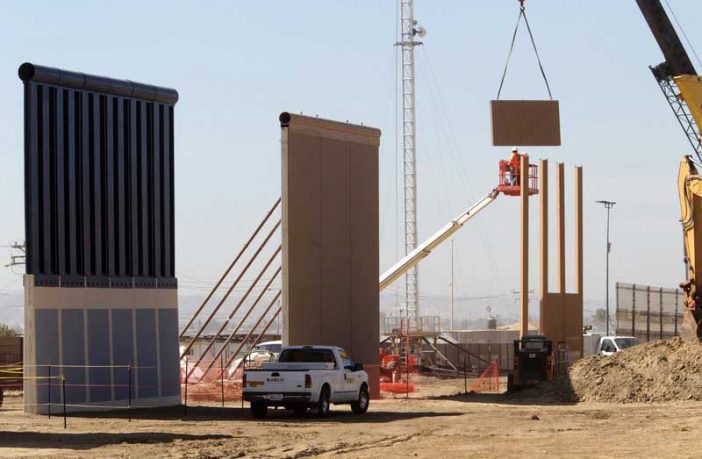On Monday, the White House unveiled President Trump’s budget request for fiscal year (FY) 2021, which he calls “a Budget for America’s Future.”
Since President Trump took office, the annual fight for appropriations has been especially combative with one of the main points of contention being funding for barriers along the southwest border. Last year, the president’s office requested $5 billion to build new barriers and strengthen existing structures. Eventually, after several delays, Congress eventually agreed to $1.375 billion. Interestingly, in this year’s request, the White House is only requesting $2 billion to “construct additional border wall along the U.S. Southwest border, strengthen and enforce U.S. immigration laws, and respond to and recover from major disasters and large-scale emergencies.”
Initially, such a meager request appears to be a dramatic surrender by the White House on the president’s signature 2016 campaign promise. However, the reality is that since President Trump utilized his executive powers— and declared a state of emergency at the southern border almost a year ago— the White House has amassed a whopping $18 billion to build the border wall. As such, the White House simply doesn’t need the same amount of funding that has been requested in years prior.
In the request’s section titled, “Ensures Security to Promote Prosperity,” the White House says that “by the end of 2020, the Administration expects approximately 400 miles of new border wall to be completed on the southern border; an additional 600 miles of new border wall will be completed in the coming years with funding made available from 2017 to 2020. In the meantime, the Administration has released a plan for updating immigration and asylum laws to encourage legal migration, promote application based on merit, and support refugees in need of protection from persecution.”
Presidential budgets are released annually, but are almost always ignored by lawmakers in Congress. Instead, budgets hailing from the White House typically serve as party (and campaign) goals prior to appropriations negotiations between Republicans and Democrats in the both chambers.
Congress annually considers several appropriations measures, which provide discretionary funding for numerous activities—such as national defense, education, and homeland security—as well as general government operations. Appropriations generally provide funding authority that expires at the end of the federal fiscal year, September 30. Unfortunately, for the past several years, Congress has failed to pass the required individual appropriations bills and has instead opted to pass all-encompassing minibus, omnibus, or continuing resolution bills to maintain government operations.




